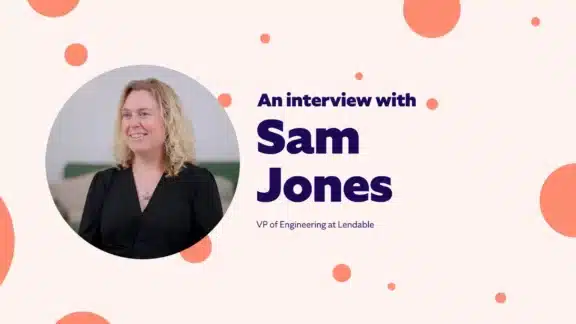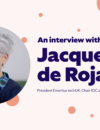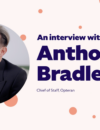Sam is VP of Engineering at Lendable, she’s been a client and a candidate of Druthers. Her experience in numerous high-growth start-ups and scale-ups has taught her a huge amount about process, people management and how best to encourage a culture of continuous improvement as well as psychological safety.
What commonalities do you see in underperforming organisations and what are the key things that are typically getting wrong that you want to change?
I think in either underperforming organisations where there’s kind of systemic problems or where there’s pockets of underperformance, it normally boils down to a few kind of key things, which perhaps are a little bit wonky. So if there’s not a clear strategy like mission and vision, then people won’t know which direction to move in. Also if leaders aren’t in alignment, that can be really, really confusing for the team. So they won’t know who to follow and which direction to go in. Also, communication is really, really important, like clear communication and making sure that things are written down. So I’ve been in meetings before where questions are left hanging in the air or there’s an assumption like so somebody’s left the room with an understanding like, great, that’s a red circle. And another person is like, great, that’s a blue square. And then that’s clearly going to go a little bit wrong. I think it’s really important as well that people are invested in each other’s success and support each other to succeed. So, the highest performing organisations have all of those things in place or they’re working on them.
What does empowerment at work mean to you and what does it look like when an individual or team feels empowered?
So I think being trusted and empowered to make best use of my time helps me feel empowered. But with that comes the responsibility to make sure that I’m sharing very openly about where I’m spending that time and how I’m prioritising and the impact that I want to have. I think empowered individuals and teams generally have higher levels of happiness and you can see that in like health checks and that comes through in one-to-ones as well.
What are the key actions that senior leaders should take in order to empower both their teams and individuals?
So I think two way communication between teams and individuals in the organisation and the senior leaders is really key again, for that alignment piece. Without alignment you can’t help people feel empowered about what direction they’re moving in. So I think that two way communication is really, really key. So active listening is a really important thing for senior leaders to do.
What mistakes do you see businesses making that lead to disillusionment and lack of motivation in their teams?
I think a big one is in organisations that do listen, which is amazing. They have to follow through on taking action to the things that people are telling them. And where I commonly see a bit of disillusionment is like I’ve said this thing like it looked like I was being listened to but actually nothing has changed. And so that’s actually quite a kind of dangerous point to be in because then people stop talking and you get levels of disengagement that can be quite hard to come back from.
Tell us a little about your experience of working with Druthers. How did you find it?
So I’ve worked with Druthers both as a candidate myself and also on the client side. So I was working for a company that had engaged others to help them build one of the most diverse leadership teams that I’ve ever had the pleasure and privilege to work with. And it really had a positive impact on the culture of the company because there was lots of different, voices in the room, lots of different perspectives that come from different experiences and it just made it really inclusive place to work and conversations that we used to have. As a candidate, I have quite high levels of trust with Druthers because I know that they work with companies to really understand what the company mission is, what the culture is, what the org structure is. So I have a really, really good idea of what the role looks like before I even kind of have that first conversation with somebody at the company. So they put in a lot of effort upfront to make sure that there’s quite a high chance of that candidate being successful when they do go into the company’s process.
Why do you think EDI should be a non-negotiable imperative for every business?
So in order to have a really successful product, you want to reach the broadest possible audience and strike a positive chord with them. So I think in order for that to happen you have to have a broad range of inputs as well. So you want lots of different types of folks in the room with different voices and different experiences feeding into that product specification, which will lead to a more successful product. So that’s why I think it’s a business imperative and if we look at the most homogenous teams, that can lead to a little bit of an echo chamber and perhaps like a bit of dysfunction on the cultural side. So when I look back at the most successful and enjoyable teams to work in, they’re the ones that were the most diverse.
What’s the best piece of advice you’ve had in your career?
Don’t sit there and wait for somebody to promote you even though you are working really hard because they won’t always notice you. You have to do a little bit of pushing, which for minority groups is going to feel uncomfortable, but you are helping your manager understand who you are, how hard you’re working.
What advice do you wish you’d asked your younger self?
I think there have been a lot of times in my career where I’ve been working really, really hard and just wanting to be noticed for working hard and thinking oh, that’s okay. Like I will get noticed, I will get the promotion. But managers are busy and they’re stretched across lots of different types of challenges and they’re usually managing a lot of different people and juggling a lot of different things at once. So I didn’t realise until quite far into my career that if I took more ownership over this and actually pushed a little bit to say, you know, I’ve been doing this, and actually the best way to help your manager understand how hard you’re working is to frame it in terms of impact. So I did this thing and it had this impact and then some metric attached to it as well, which really quickly will help them understand, this is a really valuable person for the organisation. We want to invest in them and, and grow them and hopefully promote them. So I wish I’d have done that sooner.
How can senior leaders be and create role models for people earlier in their career?
So I think one of the things that was a real light bulb moment for me when I realised it was that people will copy you whether they realise that they’re doing it or not. So a really powerful way to influence people around you and to encourage the behaviours that you want to see in the team is to do those behaviours yourself. So I always say to the folks in my team and the leaders that we’re growing, you are a role model. You need to behave in a way that you want to see in others.






